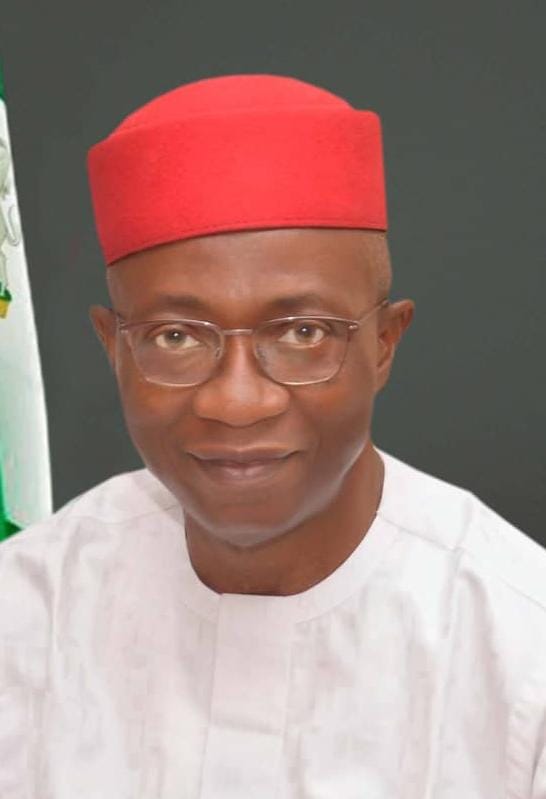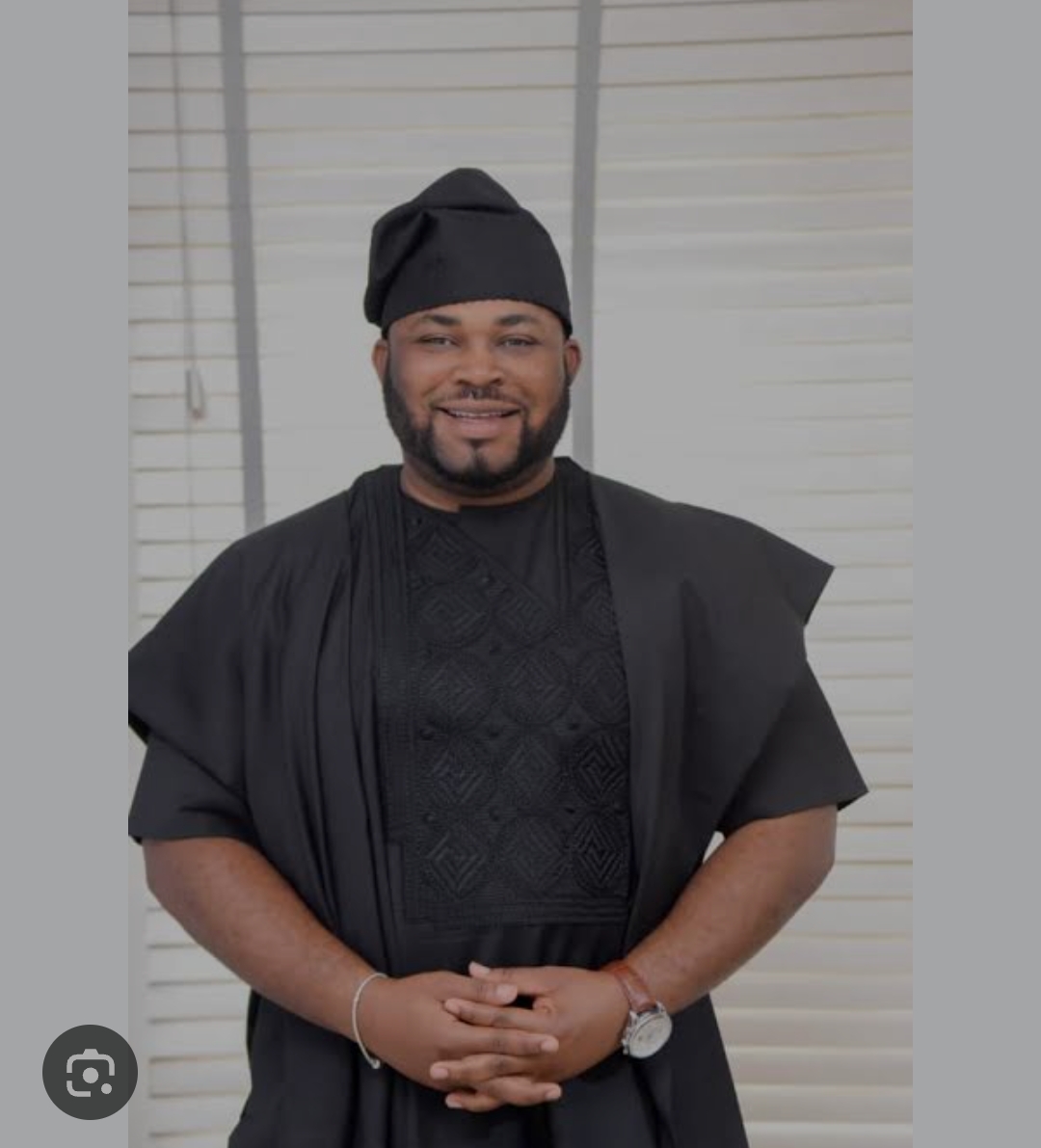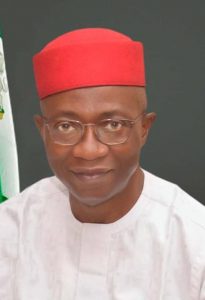celebrity radar - gossips
THE ILLUSTRIOUS JOURNEY OF HIS EXCELLENCY, PROF. PLACID NJOKU

THE ILLUSTRIOUS JOURNEY OF HIS EXCELLENCY, PROF. PLACID NJOKU (FORMER DEPUTY GOVERNOR OF IMO STATE); AN ARCHITECT OF ACADEMIC BRILLIANCE – AS HE MARKS 77TH BIRTHDAY ON THE 10TH OF FEBRUARY, 2024.
BY
CHINEDU NSOFOR
In the hallowed halls of academia, there exists a luminary whose name has become synonymous with erudition and scholarly excellence – Professor Placid Njoku (Former Deputy Governor of Imo State). Prof. Njoku’s trajectory from academic grassroot to the pinnacles of academic achievement is a testament to his unwavering dedication to knowledge and education. Four years ago, same Prof. Placid Njoku made an unexpected entry into politics as a Deputy Governor in Imo State and as he left office mid-January, 2024, he demonstrated his class in excellence, a testament that good people can very actively participate in politics and leave the stable sane and undented.
Early Life and Academic Ascent:
Prof. Placid Chike Njoku was born on the 10th February, 1947 in Umuri Amaimo, Ikeduru LGA in, Imo State. From an early age, he displayed an insatiable curiosity and innate thirst for knowledge. His academic journey began at a local primary school, where his exceptional intellect quickly caught the attention of his teachers. Driven by passion, young Placid set his sights on higher education and obtained the West African School Certificate, Division 1, in December 1964. After completing his secondary education with flying colors, Placid Njoku was among a select group of brilliant children from Eastern Region of Nigeria sent to Emergency Federal School of Science, Lagos for Higher School. At the end of the intervening Nigerian Civil War, Placid earned a coveted entry into the prestigious University of Nigeria, Nsukka, where he pursued a degree in Animal Science and graduated with Second Class Upper Division, laying the foundation for a remarkable career in academia.
Academic Odyssey:
Prof. Placid Njoku’s academic odyssey took him to renowned universities across the world, where he honed his expertise and contributed significantly to the advancement of knowledge. After his National Youth Service Corps year in Lagos State, Placid was appointed Graduate Assistant at Ahmadu Bello University (ABU), Zaria. In 1976, he obtained a training leave from ABU to study for his Master’s and Doctoral degrees in Poultry Science and Monogastric Animal Nutrition from University of Nebraska-Lincoln, U.S.A, which he earned in 1978 and 1980, respectively. At the University of Nebraska-Lincoln, U.S.A, Placid. Njoku’s academic brilliancy did not go unnoticed, as he was awarded a Graduate Assistantship in the Department of Poultry Science from 1976 to 1978 for his Master’s programme. Subsequently, he was appointed a Research Associate during his Ph.D., which he obtained in 1980, solidifying his position as a rising star in his field of study.
Returning to Nigeria immediately after graduation, Prof. Njoku continued with his university career at ABU Zaria, where he lectured and rose to the rank of a Senior Lecturer in 1986 and a Reader/Associate Professor in 1989, leaving indelible marks on countless students who were fortunate enough to learn from him. His lectures were not mere lessons; they were intellectual journeys that inspired a new generation of thinkers and scholars. On October 01, 1989, then Dr. Placid Njoku was granted sabbatical leave by ABU Zaria to Scotland, UK, where he was a Visiting Scientist to the Poultry Department at the renowned Roslin Research Station, AFRC Institute for Grassland and Animal Production, Roslin Edinburgh, Scotland.
As a scholar with a stellar reputation in academia, his academic impact covered a range of Universities including Abubakar Tafawa Balewa University (ATBU), Bauchi, where he taught many Post Graduate courses as a Professor of Animal/Poultry Science, School of Agriculture. In 1991, Prof. Njoku accepted a position as the Director of Research and Postgraduate Development at the National Universities Commission (NUC). He was later appointed Director of Academic Planning Department where he featured prominently in developing policy and structure for private universities in Nigeria and the Education Trust Fund (ETF) (now Tertiary Education Trust Fund – TETFund). Prof. Placid Njoku’s unwavering dedication and commitment in the academia resulted to his appointment in 1993 as the pioneer Vice Chancellor and consequently the Chief Academic and Administrative Officer at Federal (now Michael Okpara) University of Agriculture, Umudike, from May 27th 1993 to December 31st, 1999. By the time he left the University of Agriculture Umudike, the institution was ranked by NUC as the overall second best University in academic quality index among the 36 existing Universities following the results of the 1999 accreditation exercise in all Nigeria Universities. During his tenure as Vice Chancellor, Prof. Njoku was elected and served as Chairman, Committee of Vice-Chancellors (CVC) of all Nigerian Universities.
National Assignments:
Beyond the confines of the lecture hall, Prof. Placid Njoku embraced his responsibility to contribute to the development of his nation. As a seasoned academic and a quintessential professional who rose to the climax of his career as Vice Chancellor at (now) Michael Okpara University of Agriculture, Umudike, Professor Njoku was unanimously elected in 2007 in far away Ile-Ife Osun State as the pioneer President of the Nigerian Institute of Animal Science, thus making him one of the few Nigerians who has pioneered the establishment of two chartered Federal Institutions. His performance in both institutions is laden with outstanding legacies. His expertise led him to be appointed to various national committees and task forces including:
• Chairman, Presidential Task Force on the Closure of Satellite Campuses (2002);
• Chairman, NUC Committee on Debt Swap for Education in Nigeria (2003);
• Member, Ministerial Committee on the Implementation of Government White Paper on the report of the panel on the inquiry on the activities of the Council of Kaduna Polytechnic (2003);
• Chairman, University System Management Award Scheme Committee, NUC, Abuja(2002-2007), where he played a pivotal role in shaping policies related to tertiary education governance;
• Member, Governing Board of National Agency for Science and Engineering Infrastructure (NASENI)
Prof Njoku was also involved in several consultancies with the World Bank, British Council, Swiss Embassy, Association of African Universities, Senate Committee on Education, National Planning Commission, TETFUND.
Professor Placid Njoku’s commitment to excellence and integrity in these roles earned him the admiration of colleagues and policymakers alike.
Professor Placid Njoku in Politics:
The greatest turn of events in Placid Njoku’s life was his venture into politics. Previously, Prof. Njoku had, to the astonishment of many, suddenly left a most flourishing career in research in the universities to go into University governance at NUC and University of Agriculture Umudike. Subsequently, he changed to professional governance as he accepted the position of pioneer President, Nigerian Institute of Animal Science (NIAS), where he established the structures and brought visibility and respectability to his Animal Science profession. His professional colleagues say with pride, that Prof. Njoku is their professional anchor.
But nothing shocked Professor Njoku’s colleagues, friends, and professional network as his decision to go into politics. His choice by Distinguished Senator Hope Uzodinma to be his Deputy Governorship candidate to fly the flag of All Progressives Congress (APC) in 2019 was like a silver bullet that many could not fathom. Prof. Njoku joined the campaign fray and traversed the length and breadth of Imo State with his Principal elucidating why APC is the Party for the State and the Party of the day. Subsequent to post-election Judicial processes, on 15 January 2020, Prof. Placid Njoku was sworn-in as Deputy Governor of Imo State and his principal, His Excellency Distinguished Senator Hope Uzodinmma, as the Executive Governor of Imo State. Many held their breath, Placid Njoku, a Deputy Governor? Prof. Njoku – how is he going to survive among the political sharks? What about his career heights, his integrity? Many just watched him with great anticipation. Shortly after taking office, then came the vicissitudes of the times: EndSARS, Breaking of the Owerri Correctional Centre (Prisons), COVID 19, Regional Separation, Sit-at-Home, unbridled Insecurity, Naira Redesign (and consequent scarcity), Oil Subsidy Removal, etc. Throughout the four years, the State was seriously challenged, yet Prof. Njoku survived. In fact, with the savvy leadership of his principal, Governor Uzodinmma, they carefully managed to steer the State to incredible good health – diminishing insecurity, developing roads and infrastructure, restoring utilities, building and equipping hospitals, stabilizing and enhancing the quality and governance of educational institutions, developing new tertiary institutions, aggressively tackling youth unemployment through entrepreneurial empowerment and the “Skill Up Imo” project, institutionalizing transparency and accountability, diminishing corruption, stabilizing the Civil service, optimizing the judiciary and the legislature, working to finally define Imo boundaries and innate resources, defining the content and architecture of the Orashi industrial and marine opportunities, and more.
Prof. Njoku’s tenure as the Deputy Governor was characterised by a significant rise in educational standards and increased access to quality learning. Institutions with programmes with denied accreditation for various academic programmes had their programmes accredited. Moribund institutions were resuscitated, with his involvement, to provide Imo children more opportunities to actualize themselves academically. As Deputy Governor of Imo State, Prof. Njoku was also the Chairman of the State Boundary Committee. Here, he applied his wealth of experience in resolving age-old boundary/land disputes between Local Governments. He also provided the fundamental base which enabled the National Boundary Commission complete the field work for the delineation of the boundaries of Imo and Rivers States.
In the period too, Prof. Njoku traversed all over Imo State making friends and enthusing people, representing his Boss in many important Community, State, Regional, and National meetings and fora. Placid Njoku is today well known in Imo and national political circles, and his leaving office on 15 January 2024 brought to him a torrent of goodwill messages and acknowledgements. Known for his unmistaken and implicit faith in God, the future trajectory of Prof. Njoku will certainly be defined by time and fate, with God superintending.
Legacy and Future Endeavors:
As Prof. Placid Njoku quietly marks his 77th birthday on 10th February 2024, his story continues to inspire and shape the minds of the next generation, with his legacy firmly cemented in the annals of academia, governance and politics.
Certainly, as Deputy Governor, Prof. Njoku used his education, rich experiences in governance, and wisdom to navigate a path where many non-discerning have met the ripe banana peel.
In fact, in an era where knowledge is the currency of progress, Prof. Placid Njoku is indeed an embodiment of a book that must be read by budding politicians, a guiding light, illuminating the path for those who dare to dream and aspire to achieve greatness through the pursuit of knowledge, and a lexicon for success in deputising and in good governance. His story is not just a biography; it is a testament to the transformative power of rich education with the resultant self-confidence, integrity, and contentment as well as the indomitable spirit of a man dedicated to shaping a brighter future for generations to come. Join me in saying Happy Birthday, Your Excellency Prof. Placid Njoku.
Chinedu Nsofor is the authorized biographer of His Excellency, Prof. Placid Chike Njoku and he writes from Owerri Imo State
celebrity radar - gossips
COAS Ties Battlefield Success to Constitutional Allegiance and Civil Authority

COAS Ties Battlefield Success to Constitutional Allegiance and Civil Authority
During his operational visit to the 4 Special Forces Command in Doma, the Chief of Army Staff, Lieutenant General Waidi Shaibu, delivered a stark message, intertwining the elite unit’s combat effectiveness with an unshakeable pledge of allegiance to President Bola Ahmed Tinubu and the Nigerian Constitution.
While directing troops to intensify high-impact operations, the COAS made it clear that their mission is a direct expression of their constitutional oath. He reaffirmed that the Nigerian Army’s primary role is to defend the nation against external aggression and provide aid to civil authority, all in strict adherence to the supreme law of the land and under the leadership of the Commander-in-Chief.
This emphasis on loyalty served as a powerful backdrop to his operational directives. By linking the “decisive defeat” of terrorists to the Army’s constitutional mandate and loyalty to the President, Lt. Gen. Shaibu sought to galvanise the Special Forces, framing their upcoming engagements not just as military objectives but as a sacred duty to the democratically elected government and the nation’s founding charter. The message was clear: their fight is a fight for the Constitution and the president it empowers.
celebrity radar - gossips
Mercy Johnson Okojie, Purity Okojie Lead Campaign for Girls Tag’s All-in-One Period Care Kit

*Mercy Johnson Okojie, Purity Okojie Lead Campaign for Girls Tag’s All-in-One Period Care Kit
iBlend Services, appointed Regional Agency for Girls Tag alongside its PR and marketing firm, Eddie MPR, has officially launched Girls Tag, described as Nigeria’s first all-in-one period care pack designed for girls aged nine and above.
The initiative seeks to tackle persistent gaps in menstrual health education and access to sanitary products in Nigeria, where many girls experience their first period with little preparation or guidance. According to the promoters, Girls Tag was created to eliminate the fear, confusion, and stigma often associated with puberty, replacing them with confidence, comfort, and dignity.
Beyond hygiene, the brand positions itself as a supportive care system for both girls and parents, offering tools and language to guide families through early puberty conversations.
To strengthen its reach, Girls Tag announced a strategic ambassadorial partnership with Nollywood actress and philanthropist Mercy Johnson Okojie and her daughter, Purity Okojie. The mother-daughter collaboration is intended to reflect authenticity and relatability for Nigerian families navigating similar experiences.
Speaking on the partnership, the leadership of iBlend Services expressed confidence that the ambassadors’ real-life connection would resonate deeply with mothers and daughters nationwide.
Mercy Johnson Okojie, in her remarks, described the initiative as a natural fit, noting that puberty can be an anxious period for both parents and children. She also revealed that her newly authored puberty guide, Youberty, will be included in every Girls Tag kit. The book is designed to help boys and girls aged 10 to 13 better understand the physical and emotional changes that come with growing up.
Each Girls Tag care pack contains premium sanitary pads in various sizes, overnight period pants, panty liners, disposable sanitary bags, a discreet sanitary purse, and a copy of Youberty. The kit is tailored to support first-time and early period experiences while promoting proper hygiene and self-care.
The company disclosed that the product will be available nationwide in Q2 2026 at select retail stores, pharmacies, and malls, with direct delivery options through its website and social media handle, @girlstag.ng.
With its combined focus on education, dignity, and accessibility, Girls Tag aims to reshape menstrual health support for young girls across Nigeria.
celebrity radar - gossips
DSS Invites Ogun LG Chairman, Alebiosu and others Over Attack At APC Stakeholders Meeting

*DSS Invites Ogun LG Chairman, Alebiosu and others Over Attack At APC Stakeholders Meeting*
The Department of State Services (DSS) Abeokuta on Monday invited Ijebu Ode local government Chairman, Hon Dare Alebiosu, and some political thugs alleged to have caused disturbance, incitement and physical attack during an APC stakeholders meeting few days to Ward Congress in the area.
A reliable security source disclosed that an aide of the Governor who was reportedly attacked during the stakeholders meeting was said to have petitioned the DSS.
According to the source, there have been growing concerns over the activities of the LG Chairman, who was alleged to be backing cultists and using them as a tool for harassment and intimidation in the community.
As it was reported, the LG boss was accused to have openly confronted and accused the Governor’s aide for identifying some of the cultists to DSS officials, while one of the cultist was said to have hit their target in the face and removing his medicated glasses. The swift and professional intervention of the Men of DSS quickly deescalated the matter and the meeting went on to a conclusive end.
The meeting which held at the residence of Chief Okuboyejo, the Governor’s Advisory Council Chairman at GRA Ijebu ode became tensed, after the LG chairman invaded the private premises of the old man with a large number of cultists which some of them were allegedly believed to be armed.
The source added that the case is presently with the DSS, while the petitioner has also submitted various evidence against the LG Chairman.
In another turn of event, Commisoner for Urban and regional planning was harassed and robbed, so also the former SLG to the Local govt also almost lost his life as he was attacked with cutlass by thugs who were allegedly said to be led by Dapo Adebajo, he was hospitalized. The case has also been reported to the DSS and Police as at the time of filling this report.
-

 celebrity radar - gossips7 months ago
celebrity radar - gossips7 months agoWhy Babangida’s Hilltop Home Became Nigeria’s Political “Mecca”
-

 society6 months ago
society6 months agoReligion: Africa’s Oldest Weapon of Enslavement and the Forgotten Truth
-

 society7 months ago
society7 months agoPower is a Loan, Not a Possession: The Sacred Duty of Planting People
-

 news3 months ago
news3 months agoWHO REALLY OWNS MONIEPOINT? The $290 Million Deal That Sold Nigeria’s Top Fintech to Foreign Interests









